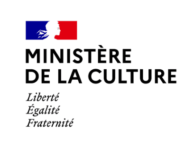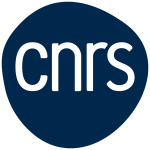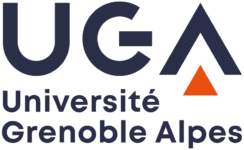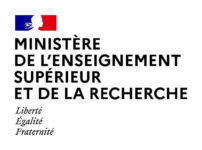Funding of activities
Mathdoc’s activities are made possible thanks to regular support from two supervisory authorities: CNRS Mathematics – INSMI and Université Grenoble Alpes (UGA). This support includes human resources (provision of permanent staff, appropriations for recruitment of temporary staff) and operating funds.
Project funding
Mathdoc also receives additional funding for targeted projects:
In 2023, as in 2022, Mathdoc received specific support from the CNRS Open Research Data Department (DDOR). Mathdoc is also active in the GATES project (2022-2032), which has been approved as part of the France 2030 ExcellencES call for projects, supported by the UGA. In November, Mathdoc was awarded the 3rd call for projects by the National Fund for Open Science (FNSO 3) for the NEXTGEN project led by the centre Mersenne.
In 2022, Mathdoc launched a project to semi-automatically translate scientific articles from the Comptes Rendu de l’Académie des Sciences through specific funding from the French Ministry of Higher Education, Research and Innovation and the Ministry of Culture. Centre Mersenne also received donations from Laboratoire Angevin de Recherche en Mathématiques (LAREMA) and Laboratoire de Mathématiques Appliquées at Paris 5 (MAP5).
In 2021, Mathdoc received exceptional support from the CNRS Open Research Data Department (DDOR) for the redesign of its website as well as the websites of centre Mersenne and several journals. The same year, Mathdoc won a second call for projects by the French National Fund for Open Science (FNSO 2) for its digital library project, Geodesic.
In 2020, Mathdoc won the first call for projects by the French National Fund for Open Science (FNSO 1) for its DEMOS project (Editorial development of centre Mersenne for Open Science), which aims to consolidate the Mersenne platform, develop new high-quality editorial tools and expand its publishing services by recruiting two temporary employees.
Since 2019, Mathdoc has received regular donations to support centre Mersenne from institutions such as bibliothèque de Lyon, and bibliothèque de Strasbourg. Between 2016 and 2018, Mathdoc obtained two grants for PCMath as part of the Collex-Persée calls for projects. This funding has made it possible to recruit two temporary staff members to enhance the CFP’s features as a tool for managing and improving the plan.
Support from IDEX Grenoble starting in 2017 strengthened Mathdoc’s human resources, which contributed to the creation and development of centre Mersenne.
In 2012, as part of a development project related to the scientific and technical heritage of UJF, funded by the Department of Research and Technology Transfer (DRV), Mathdoc digitised Revue d’Écologie Alpine, a journal published by the Alpine Ecology Laboratory (LECA) of Grenoble and Jardin du Lautaret.
Since 2000, Mathdoc has gradually built the Numdam digital library over the course of several key phases, for which it received successive financial support from various institutions and organisations:
In 2021, Mathdoc received an exceptional grant from INSMI for the purchase of a planetary scanner for digitising old and valuable documents. In 2016, Numdam obtained financial support from IDEX of Grenoble for the digitisation and online publication of the Astérisque collection.
In 2014, Mathdoc received a grant from the Digital Science Library (BSN) of the French Ministry of Higher Education and Research as part of the BSN5 call for tender. In addition, Mathdoc received financial support from the IRMAR Laboratory of Rennes and its associated Labex (Centre Henri Lebesgue) and moral support from SMF and SFdS.
Between 2008 and 2011, the digitisation programme was able to continue thanks to funding from the research department of Université Joseph-Fourier (UJF) and CNRS. In 2006, École polytechnique funded Mathdoc’s digitisation of the papers from the seminar organised by Laurent Schwartz. In 2005, Université Paul Sabatier of Toulouse funded part of the digitisation of the Annales de the Faculté des Sciences de Toulouse.
In 2004-2005, as part of the Rhone-Alpes Digital Information Library (BRAIN) programme, the Rhone-Alpes University Conference (CURA) and the Rhone-Alpes region jointly decided to help implement projects to digitise and enhance the universities’ heritage collections. Mathdoc was selected to carry out the digitisation of the Groupe d’étude d’algèbre and the Groupe d’étude de théories stables, two Parisian seminars held by the library of Institut Fourier.
Starting in 2000, the French Ministry’s Research Directorate allocated 3 million francs to a national operation for “Digital documentation in mathematics” led by CNRS and carried out by Mathdoc. This sum allowed the launch of the first digitisation pilot phase and also made it possible to carry out the entire second phase.










